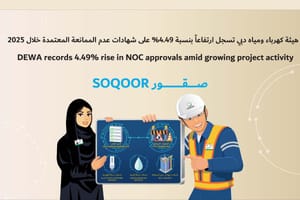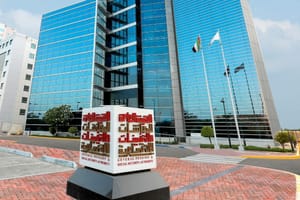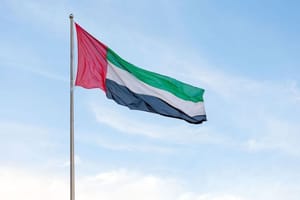If you own a plant nursery or are involved in agriculture in the UAE, importing seeds, saplings, or other agricultural products can help diversify your produce and expand your business. However, such imports require proper authorization from the Ministry of Climate Change and Environment (MOCCAE). Whether you’re importing seeds, tubers, seedlings, plants, palm seedlings, or even honeybees, here’s everything you need to know about obtaining permits and ensuring compliance with UAE regulations.
Why Obtain an Import Permit?
Agricultural shipments entering the UAE are subject to strict inspections to ensure they meet all import requirements. These measures are in place to protect the country’s ecosystem from pests, diseases, and genetically modified organisms (GMOs). Upon arrival, shipments are inspected and released only if they comply with MOCCAE’s guidelines.
Documents Required for Importing Agricultural Shipments
For Seeds and Tubers:
- Authorization Letter: A letter from the producing or exporting company stating they do not object to the registration and trading of the seeds/tubers in the UAE.
- Technical Certificate: A certificate from the producing company, certified by the competent authority in the country of origin, confirming the seeds/tubers are not genetically modified.
- Company License Certificate: Proof that the producing company is licensed to produce seeds/tubers, issued by the competent authority in the country of origin.
- Technical Sheet: A document from the producing company detailing:
- Name and address of the company
- Scientific name of the item (Genus, species, and varieties)
- Origin and group (hybrid or plain)
- Resistance to pests and purity percentages
For Organic Seeds/Tubers: A valid organic certification from the Emirates Authority for Standardization and Metrology (ESMA) or an internationally recognized body (e.g., European, American, Japanese, or Australian standards).
For Releasing the Shipment:
The following documents are required for all agricultural shipments (seedlings, plants, palm seedlings, seeds, tubers, and bees):
- Certificate of Origin
- Phytosanitary Certificate: Issued by the competent authority in the exporting country.
- Customs Declaration, Bill of Lading, or Delivery Order
- Invoice or Product List
Additional Requirements for Seeds:
- A germination and purity testing certificate issued by a government laboratory or an accredited lab in the country of origin, following the International Seed Testing Association (ISTA) system.
Steps to Obtain an Import Permit
- Apply Online: Submit your application via the MOCCAE website or the GeoEnvAe app (available on Apple and Android).
- Pay the Fees:
- Dh100: For permission to import seeds, tubers, plants, palm seedlings, outdoor saplings, or honeybees.
- Dh200: For water, soil, or plant sample analysis.
- Dh500: For releasing the consignment after inspection.
- Inspection: Upon arrival, the shipment will undergo visual or laboratory inspections. A release permit will be issued electronically if all requirements are met.
Service Time: Approximately 5 working days.
Validity: Permits are valid for 6 months.
General Requirements
- The importer must have a valid agricultural activity license.
- Importing permits must be obtained before shipping the consignment.
- Only items listed on the permit will be accepted; any unlisted items will be rejected.
- The imported items must be listed on MOCCAE’s electronic services system.
Special Requirements for Specific Shipments
Seeds and Tubers:
- The establishment must have an agricultural activity license that includes permission to import and export seeds.
- Packaging must be made of stainless steel, aluminium-lined paper bags, or plastic and burlap containers to ensure the seeds remain vibrant and undamaged.
- Labels must include:
- Name of crop and variety
- Date of seed production and shelf life
- Operational number, purity percentage, and germination rate
- Name of the producing company and origin
- Chemical treatments performed on seeds before packing
- Net weight or number of seeds
Seedlings and Plants:
- The establishment must have an agricultural activity license that includes permission to import and export plants and seedlings.
- Natural soil associated with seedlings or plants is not allowed.
- Packaging of plant origin must include a statement in the phytosanitary certificate confirming it has been treated.
- Specific requirements apply for importing plants from countries affected by pests like Tuta absoluta or fall armyworm.
- Importing plants or offshoots from countries affected by Bayoud disease, lethal yellowing disease, or red palm weevil is prohibited.
- Tissue-cultured palm seedlings with a stem diameter not exceeding 5 cm are allowed.
Honeybees:
- The establishment must have an agricultural activity license that includes permission to import and export bees.
- Shipments showing symptoms of diseases like Varroa mite, Nosema disease, or American foulbrood will not be allowed.
- Importing Asian bees, giant bees, or African bee breeds is prohibited.
- Bees cannot be imported from countries affected by pests like small hive beetle (Aethina tumida) or tropilaelaps spp.
Why Compliance Matters
Adhering to MOCCAE’s regulations ensures the smooth import of agricultural shipments while safeguarding the UAE’s environment and agricultural sector. By following the proper procedures, businesses can avoid delays, rejections, or penalties.
Plan Ahead for a Smooth Process
Whether you’re importing seeds, plants, or honeybees, planning ahead and ensuring all documents and requirements are in order will save time and effort. With the right permits and compliance, you can successfully expand your agricultural business in the UAE.
News Source: Khaleej Times









